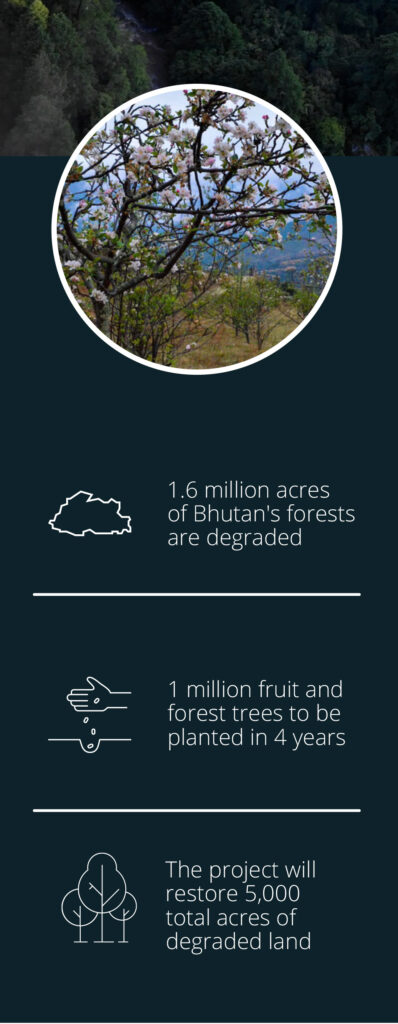May 9, 2022

Bhutan is highly vulnerable to the adverse effects of climate change due to its location in the fragile mountainous ecosystem and has strong sensitivities to environmental changes. In particular, Bhutan is increasingly challenged with threats from climate hazards and extreme events such as flash floods, glacial lake outbursts, floods, windstorms, forest fires, landslides, and more.
More than 70% of the country’s total geographical area is under forest cover, with a sequestration capacity of greater than 9.42 million tons of carbon dioxide. Forests, however, are subject to both anthropogenic pressure and climate change-related stress and remain susceptible to degradation. Current estimates show that degraded forest areas account for more than 1.6 million acres across Bhutan and are found within the country’s Protected Areas and Forest Management Units (FMUs). In addition to degraded forest areas, a significant portion of arable drylands remains fallow.
Amid the global COVID-19 pandemic, the Bhutan Foundation, in partnership with the Bhutan Ecological Society (BES), launched the One Million Trees initiative in April 2021. The initiative’s main objective is to restore degraded forest areas and rehabilitate the fallow and arable drylands across the country by planting both forest and fruit trees. The million-tree initiative not only will increase carbon storage capacity to keep Bhutan on a carbon-negative trajectory but will also help increase incomes for smallholder farms through sales of fruits, nuts, and carbon offsets in the long run.
The Bhutan Ecological Society will implement the project in collaboration with the Department of Forests and Park Services, Natural Resources Development Corporation, Green Bhutan Corporation Limited, and volunteers and private individuals. The aim of the project is to plant a million trees over the next four years and to rehabilitate more than 5,000 acres of degraded land, including 2,000 acres of arable farmland.